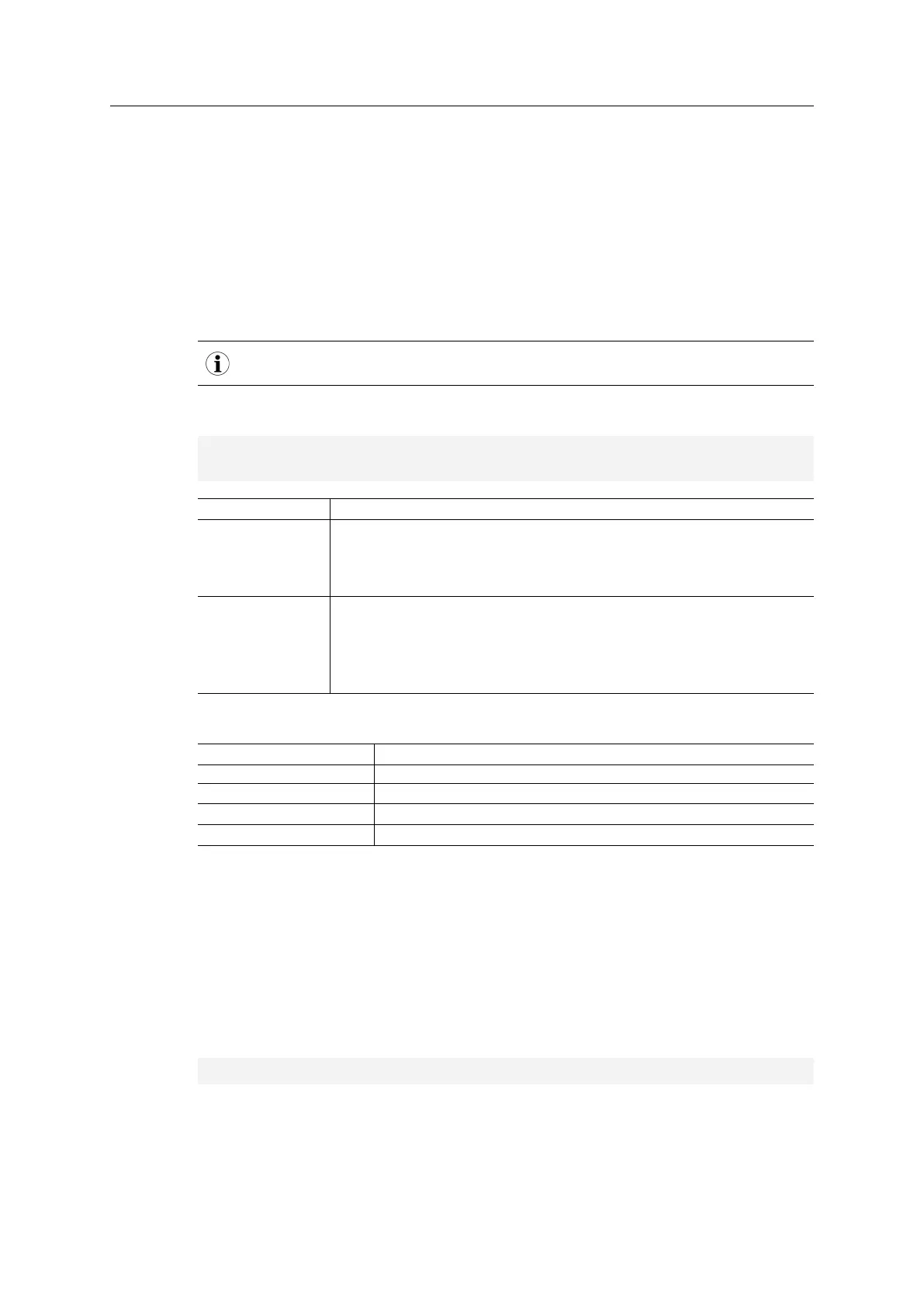Server Side Include (SSI) 58 (258)
9.3.10 scanf()
This function is very similar to the printf() function described earlier, except that it is used for in-
put rather than output. The function reads a string passed from an HTML form object, parses
the string as specified by a template string, and sends the resulting data to the specified argu-
ment. The formatting syntax used is similar to that of the standard C-function scanf().
The function accepts a source, a template string containing zero or more formatting tags, fol-
lowed by a number of arguments. Each argument corresponds to a formatting tag, which deter-
mines how the data read from the HTML form shall be interpreted prior sending it to the
destination argument.
This command cannot be used in e-mail messages.
Syntax:
<?--#exec cmd_argument='scanf("source", "template" [,
argument1, ..., argumentN])'-->
source
Name of the HTML form object from which the string shall be extracted.
template: Template which specifies how to parse and interpret the data. May contain any number
of formatting tags which determine the conversion prior to sending the data to subse-
quent arguments. The number of formatting tags must match the number of argu-
ments; if not, the result is undefined.
See section “Formatting Tags” below for more information.
argument:
Destination argument(s) specifying where to send the interpreted data. The number of
arguments must match the number of formatting tags; if not, the result is undefined.
At the time of writing, the only allowed argument is ABCCMessage().
See also...
• ABCCMessage(), p. 60
Default Output
Scenario Default Output
Success “Success”
Parsing error “Incorrect data format”
Too much data for argument “Too much data”
ABCCMessage error ABCCMessage error string (Errors, p. 63)
Example
See also...
ABCCMessage(), p. 60
Example (Set_Attribute):, p. 62
Formatting Tags
Formatting tags are written as follows:
%[*][Width][Modifier]type
Anybus
®
CompactCom
™
40 PROFINET IRT Network Guide SCM-1202-023 EN 1.8
